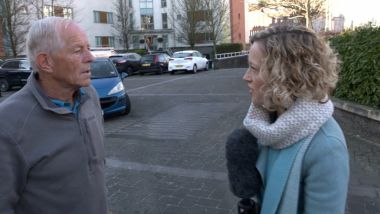The John Smyth case: could a 'duty of candour' have saved more boys from harm?

Would the serial abuser John Smyth have been exposed in the 1980s if Church of England clergy had been required to report evidence of abuse?
In a letter to the Church Times on October 5 former General Synod member Vasantha Gnanadoss proposed that "a John Smyth clause" be put into the C of E's clergy discipline rules.
This would make "a duty of candour explicit for clergy, and especially for bishops and archbishops", she wrote. As a member of General Synod from 2005 to 2010 she served on the C of E's Clergy Discipline Commission.
In 2019 the C of E's National Safeguarding Team commissioned an independent lessons learned into the response of the Church to the allegations against Smyth. Five years later the review, led by former director of social services Keith Makin, has still not been published.
In her letter Vasantha Gnanadoss, a lay member of Southwark Diocesan Synod, commended Prime Minister Sir Keir Stramer's pledge to introduce by next April a "Hillsborough Law", named after the stadium disaster at Sheffield Wednesday's football ground in 1989. This would require all public bodies and public servants to cooperate with investigations into future disasters and scandals.
She wrote: "The long Hillsborough struggle for truth and justice was impeded by a lack of honesty and openness by those in power, a willingness to close ranks and blame others, and a failure to disclose relevant information."
She argued: "Much the same can be said about the much delayed Makin inquiry into the abuses by John Smyth. One might hope that candour would be the norm in the Church. Candour would be of great benefit to the welfare of survivors of abuse."
She then proposed her "Smyth Clause" to introduce an explicit duty of candour which would significantly strengthen the present duty on clergy to pay "due regard" to the safeguarding of children and vulnerable adults.
From 1974 to 1982 leading barrister John Smyth QC was chairman of the charitable trust that ran evangelical camps for teenage school boys from England's "top 30" private boarding schools. He used the holiday camps in the Dorset village of Iwerne Minster to groom his victims whom he savagely beat in the garden shed of his home in Winchester. He persuaded them that such beatings would help purge them of their sins.
When the C of E announced the Makin Review in 2019, the BBC reported: "In 1982, Mr Smyth was confronted about his conduct after the Iwerne Trust compiled a secret report, written by the Rev Mark Ruston and Rev David Fletcher.
"Mr Smyth was encouraged to leave the country and moved to Zimbabwe without any referral being made to police."
The BBC report continued: "The Archbishop of Canterbury, Justin Welby, is expected to give evidence (to the Makin Review), having attended camps at Iwerne Minster as a young man. He has admitted knowing Mr Smyth but has denied any knowledge of his activities."
Mark Ruston and David Fletcher, both now deceased, were C of E clergy. Ruston was vicar of the Round Church in Cambridge from 1955 to 1987. Fletcher was overall leader (commandant) of the Iwerne camps from 1962 to 1986.
The question arising from Vasantha Gnanadoss's proposal is this: Would a mandatory duty on clergy to report evidence of abuse have stopped Smyth, who died in South Africa in 2018, from abusing children in Zimbabwe?
Under the circumstances, it almost certainly would, especially if the clergy in the know had passed the evidence of Smyth's abuses to the British police. The secret 1982 Iwerne Trust report expressed the view that Smyth's behaviour was criminal.
The question also arises: how many other clergy were told about Smyth's abuses after the 1982 report? How many of the volunteer leaders who helped out on the Iwerne camps, many of whom were ordinands (trainee clergy) at C of E theological colleges in Oxford, Cambridge and Durham, were informed by Fletcher of Smyth's abuses?
Such men, then in their 20s, would now be serving clergy in their 50s and 60s. How many of them knew about Smyth's abuses in the 1980s?
According to a Church Times report in 2021, "almost constant concerns" about Smyth were raised in Zimbabwe, where he launched camps for boarding school boys, as early as 1986.
"In 1992, a 16-year-old boy, Guide Nyachuru, was found dead in a swimming pool at a Zambezi camp, prompting other young men to come forward. A paper heard by the Supreme Court of Zimbabwe in 1997 suggests that 90 boys had raised allegations against Smyth," the newspaper reported. Smyth evaded justice after the Zimbabwean authorities dropped the case against him.
Had C of E clergy been under a mandatory reporting discipline in 1982, it is surely very possible Smyth could have been arrested and charged before he escaped to Zimbabwe in 1984. If so, a victim's life could have been saved.
Julian Mann is a former Church of England vicar, now an evangelical journalist based in Lancashire.











